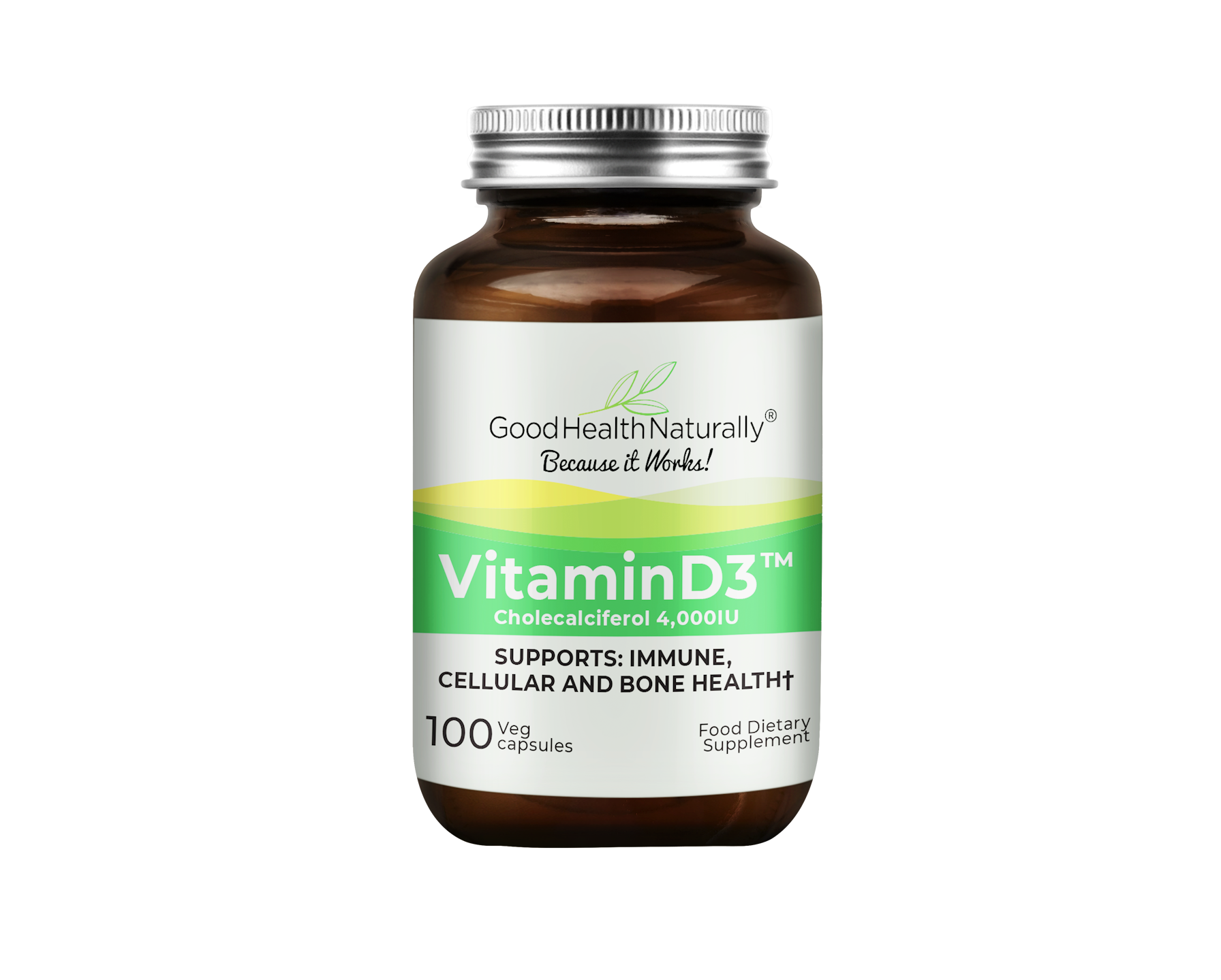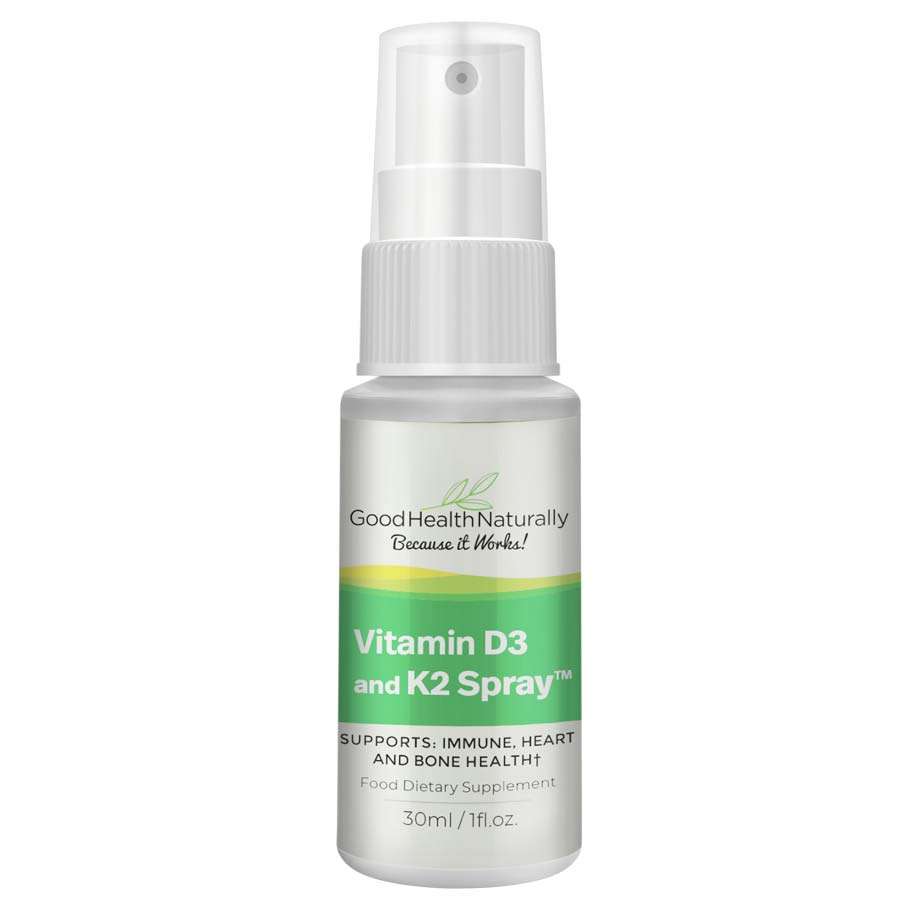Vitamin D3 is an essential nutrient that significantly affects our health and well-being. It helps regulate the immune system, supports strong bones and teeth, and even helps improve mood and mental acuity.
Many people have questions about what Vitamin D3 is exactly and why we need it. Other common questions are how Vitamin D3 can benefit their various health conditions.
That’s why we’ve rounded up some of the most common questions people ask about Vitamin D3 so you can get the answers you need…
1. What Is Vitamin D3?
Vitamin D3 (cholecalciferol) is a fat-soluble vitamin naturally produced when our skin is exposed to sunlight. It’s also found in foods like egg yolks, fatty fish, fortified milk, and beef liver, however nowhere near enough to satisfy requirements. In addition to its natural sources, it can also be taken as a dietary supplement in pill form or liquid drops for those unable to get enough from their diet alone.
2. What Does Vitamin D3 Do?
Vitamin D3 supports healthy bones, teeth, muscles, nerves, and hormones. It helps regulate calcium levels in the blood, which aids in bone development and strength.
Additionally, research shows that Vitamin D3 may help reduce inflammation throughout the body, which can help reduce pain caused by joint conditions like arthritis or bursitis. Finally, research suggests that Vitamin D3 may support mood regulation by allowing a decrease of stress hormones like cortisol.
3.What Are The Symptoms of Vitamin D3 Deficiency?
Vitamin D3 deficiency can lead to various symptoms, including bone pain, muscle weakness, fatigue, and depression. It can lead to rickets in children, which causes weak and soft bones.
4. Who Are Most At Risk For Vitamin D3 Deficiency?
Certain groups of people are at a higher risk of Vitamin D deficiency, including those who have limited sun exposure (such as those who live in northern latitudes or who spend most of their time indoors), those with darker skin, those who are obese, and those who have certain medical conditions (such as Crohn’s disease or celiac disease).
5. How Much Vitamin D3 Do I Need Per Day?
The recommended daily Vitamin D3 varies depending on age and individual needs. However, some experts suggest that higher amounts of Vitamin D3 may be necessary for specific individuals, such as those with darker skin or living in areas with limited sunlight. You could have a Vitamin D test to establish your levels and then supplement accordingly.
6. Can Vitamin D3 Help To Boost My Immune System?
Vitamin D3 plays a vital role in immune system function, and some research suggests that it may help boost immune function and reduce the risk of certain infections.
Vitamin D3 helps support immune system function by regulating the production and activity of various immune cells, such as T-cells and B cells. Vitamin D3 also helps to stimulate the production of antimicrobial peptides, which are proteins that help to fight off infections caused by bacteria, viruses, and fungi.
In addition to its role in immune function, Vitamin D3 has also been linked to a reduced risk of certain autoimmune disorders, such as multiple sclerosis, rheumatoid arthritis, and Type 1 diabetes.
While more research is needed to understand the relationship between Vitamin D3 and immune function fully, it is clear that Vitamin D3 plays a vital role in overall health and well-being.
If you are concerned about your Vitamin D3 levels or immune function, talk to your healthcare provider about whether or not Vitamin D3 supplementation may be right for you.
7. Does Vitamin D3 Affect My Mood or Mental Health?
Vitamin D3 may play a role in mood and mental health, as it is involved in various body processes related to brain function. Studies have shown that individuals with low Vitamin D3 may be at a higher risk of depression and other mood disorders.
One theory is that Vitamin D3 may help regulate the production of neurotransmitters in the brain, such as serotonin, which are essential for regulating mood and emotions. Vitamin D3 may also help reduce inflammation in the body, which has been linked to the development of depression and other mental health disorders.
While more research is needed to understand the relationship between Vitamin D3 and mental health fully, some studies have suggested that Vitamin D3 supplementation may help improve mood and reduce symptoms of depression. However, it is essential to note that Vitamin D3 supplementation should not be used as a substitute for professional treatment of mental health disorders.
8. Can I Get Enough Vitamin D3 From Food Alone?
Some food sources of Vitamin D3 include fatty fish (such as salmon, tuna, and mackerel), egg yolks, and fortified foods (such as milk or orange juice). However, the amount of Vitamin D3 in these foods can vary widely, and it may be challenging to consume regularly enough to meet your daily needs.
Additionally, Vitamin D3 is unique because it can be synthesised by the body when the skin is exposed to sunlight. However, the amount of Vitamin D3 produced in this way can vary depending on the time of day, season, latitude, and skin colour.
Some individuals may be unable to make enough vitamin D3 from sunlight alone, mainly if they live in areas with limited sun exposure or spend most of their time indoors.
For these reasons, many healthcare providers recommend Vitamin D3 supplementation to ensure adequate intake. The recommended daily Vitamin D3 varies depending on age, health status, and other factors.
If you are concerned about your Vitamin D3 levels or considering supplementation, talk to your healthcare provider to determine the appropriate dosage and monitor your Vitamin D3 levels over time.
9. Should I Take A Vitamin D3 Supplement?
For most adults with no significant medical conditions or allergies who don’t eat many fish or dairy products regularly (or don’t spend much time outside), taking a daily supplement of Vitamin D3 may be beneficial for overall health and well-being.
Daily supplements may benefit overall health and well-being for those unable to get enough from these sources alone. If unsure, you should check with your doctor or medical practitioner first.
The UK government recommends taking Vitamin D3 in winter, but many people may benefit from a Vitamin D3 supplement year round. If you work in an office or factory though, you’re unlikely to get enough Vitamin D3 from sun exposure alone. We also tend to cover our skin with sunscreen when we go out in the sun, which can hinder Vitamin D absorption.
10. Can I Take Vitamin D3 Supplements If I Am Pregnant Or Breastfeeding?
If you are pregnant or breastfeeding, you must talk to your healthcare provider before taking Vitamin D3 supplements or changing your diet or medication regimen.
Generally, the recommended daily Vitamin D3 during pregnancy and breastfeeding is the same as for non-pregnant individuals. However, your healthcare provider may recommend higher or lower doses based on your needs and circumstances.
It is also important to note that some prenatal vitamins and other supplements may already contain Vitamin D3, so it is essential to read the labels carefully and avoid taking too much of this vitamin.
Again, talk to your healthcare provider before taking any Vitamin D3 supplements or changing your diet or medication regimen during pregnancy or breastfeeding.
In Conclusion
Scientific research has shown that Vitamin D3 supplements can significantly benefit overall health and wellness. The body can naturally produce Vitamin D through direct exposure to the sun. However, many people may get less sun than is required to maintain healthy levels.
Vitamin D3 supplements can be a beneficial addition to any diet plan, particularly for those who live in colder climates and experience limited sun exposure throughout the year. With adequate amounts of Vitamin D3, our bodies can better fight off severe diseases and conditions while promoting physical strength, immunity and cognitive clarity.
Consider adding a Vitamin D3 supplement regimen to your daily health plan if you want to experience all of these vitamins’ fantastic benefits.
Together with a balanced diet, moderate exercise and quality sleep, your body could develop into its strongest self — mentally, physically and emotionally.
You may want to consider adding the following Vitamin D3 supplements into your wellness regime for the best results.
Recommended Examples
Vitamin D3™ (4000IU)
Vitamin D3™ (4000IU) – An essential combination of Vitamin D3 and 100mg of Calcium (from coral) to support the immune system. Available from Good Health Naturally.
Vitamin D3/K2 Sublingual Spray™
Vitamin D3/K2 Sublingual Spray™ – Provides 1000IU Vitamin D3 and 100mcg of Vitamin K2 MK7 per serving. Take five sprays daily, orally or sprayed onto food, or as directed by your healthcare professional. Best taken with food.
Supports normal immune system response and may also benefit skin health. Provides better calcium and phosphorus absorption in the blood and bones. Vegan and vegetarian-friendly Vitamin D3. Available from Good Health Naturally.







